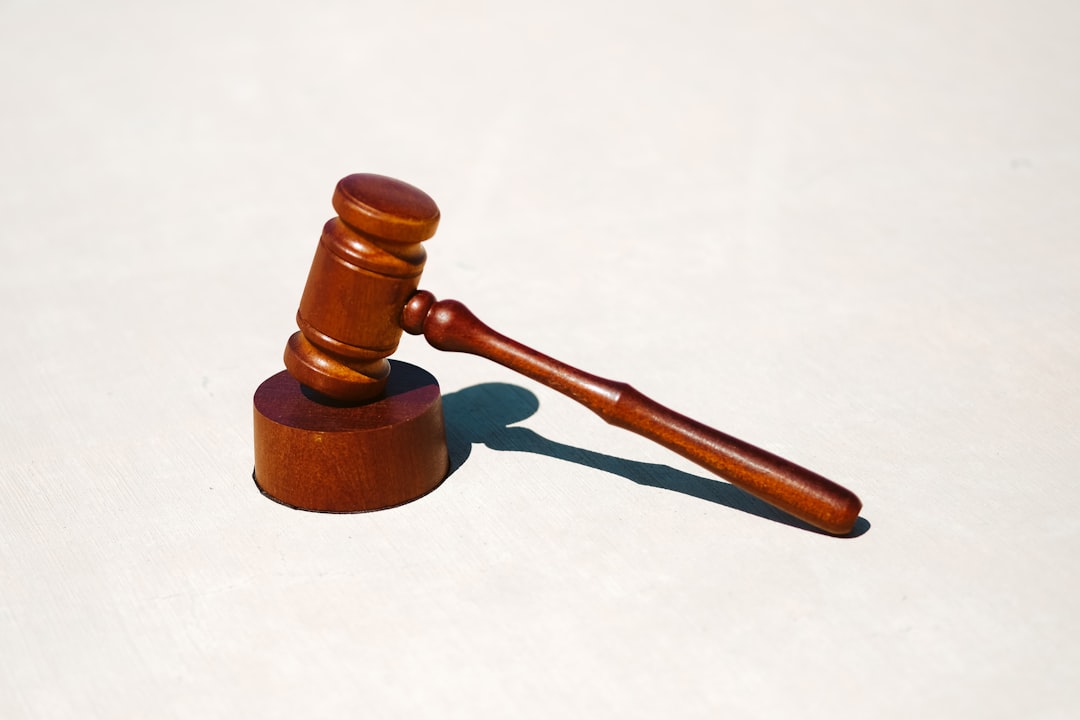In Ohio, residents can protect themselves from unwanted telemarketing calls by registering on the National Do Not Call Registry and consulting a No Call Attorney Ohio if they suspect violations. The state's Telephone Consumer Protection Act (TCPA) restricts automated calls without prior consent, with penalties for violators. Documenting interactions and seeking legal counsel are crucial steps for Toledo residents to safeguard their rights and privacy against intrusive marketing calls. No Call Attorneys in Ohio specialize in addressing do-not-call list violations, offering guidance, documenting evidence, and taking action on behalf of clients.
In Toledo, Ohio, understanding and enforcing ‘No Call’ laws is crucial for residents seeking protection from unwanted telemarketing calls. This comprehensive guide aims to equip Toledoans with knowledge about Ohio’s no-solicitation regulations. We’ll explore common violations, reporting processes, and the critical role of a No Call Attorney in Ohio. Learn how to assert your rights, navigate legal actions, and prevent future intrusions by understanding the steps involved in reporting a violation effectively.
Understanding No Call Laws in Ohio: A Legal Perspective

In Ohio, “no call” laws are designed to protect residents from unwanted telemarketing calls and sales pitches. These laws give consumers the right to register their phone numbers with the National Do Not Call Registry, effectively banning commercial calls to those numbers. Violating these laws can result in significant penalties for telemarketers and sales representatives. If you believe a “no call” law has been broken, consulting a No Call Attorney Ohio is advisable. They can guide you through the legal process of reporting such violations, which typically involves contacting relevant regulatory bodies and gathering evidence to support your claim.
Understanding the specifics of these laws is crucial for both consumers and businesses alike. For instance, in Ohio, businesses are generally allowed to call numbers not on the Do Not Call Registry for a specific purpose, such as collecting a debt or confirming an order. However, calls must be made during certain hours (generally 8 am to 9 pm, local time) and cannot be made if the recipient has requested their number be removed from marketing lists. A No Call Attorney Ohio can help interpret these rules, ensuring that both parties understand their rights and responsibilities under the law.
Recognizing Violations: When Does a No Call Become a Legal Issue?

Recognizing violations of the no-call laws is crucial for residents of Toledo, Ohio, to protect their rights and privacy. A “no call” becomes a legal issue when an individual or organization makes unsolicited phone calls, often known as telemarketing or robocalls, despite being on the Do Not Call Registry. This registry, maintained by the Federal Trade Commission (FTC), allows consumers to opt-out of such calls. If you are registered and still receive unwanted calls, it may indicate a violation of both state and federal laws, especially if the caller does not provide an option to stop receiving calls or identifies themselves as a sales representative.
In Ohio, the Telephone Consumer Protection Act (TCPA) prohibits automated or prerecorded calls to residential telephone numbers unless the caller has obtained prior express consent from the called party. Additionally, these laws extend to text messages and faxes. If you suspect a no-call violation, consulting with a No Call Attorney Ohio can help determine the best course of action, including reporting the issue to relevant authorities or taking legal recourse if necessary.
Reporting the Violation: Steps to Take as a Toledo Resident

As a resident of Toledo, if you’ve experienced unwanted phone calls from telemarketers or sales representatives, it’s important to know your rights and how to report these violations. The No Call Law in Ohio is designed to protect citizens from relentless sales calls, but enforcing this law requires active participation from individuals who encounter such violations.
To report a No Call Law violation, follow these steps: first, gather evidence by noting the caller’s name, phone number, and date/time of the call. Next, contact the Ohio Attorney General’s Office to file a complaint online or over the phone. You can also involve a No Call Attorney in Ohio who specializes in handling such cases and can guide you through the legal process if necessary. Keep detailed records of all interactions related to the violation for future reference.
The Role of a No Call Attorney in Ohio: Expert Guidance and Representation

In Ohio, the role of a No Call Attorney is pivotal in ensuring compliance with and enforcement of the state’s “no call” laws designed to protect consumers from unwanted telemarketing calls. These attorneys specialize in handling violations and disputes related to do-not-call lists, providing expert guidance and legal representation to individuals who have experienced unwanted phone solicitations.
With a deep understanding of Ohio’s consumer protection regulations, No Call Attorneys in Ohio can offer strategic advice on how to navigate legal avenues when dealing with persistent or unauthorized telemarketing activities. They play a crucial role in helping clients understand their rights, document violations, and take appropriate legal action against offending parties. Their expertise enables consumers to exercise their rights effectively, ensuring that unwanted calls are stopped and, where necessary, seeking damages for any resulting harm.
Prevention and Enforcement: What's Next After Reporting a Violation?

After reporting a violation of Ohio’s No Call Law, it’s crucial to understand the next steps in prevention and enforcement. The first course of action is to document all interactions with telemarketers, including dates, times, and a detailed description of the calls. This information can be invaluable when pursuing legal action or filing a complaint with relevant authorities.
Next, consider consulting with a No Call Attorney Ohio to assess your legal options. These attorneys specialize in navigating state laws regarding unwanted telemarketing calls and can provide guidance on how to proceed. They may help you negotiate with the offending party, file a lawsuit, or take formal steps to ensure compliance with the law, thereby preventing future violations.






